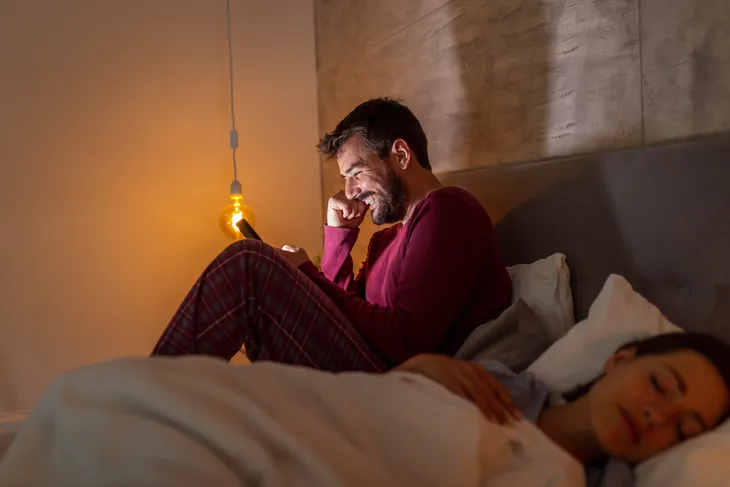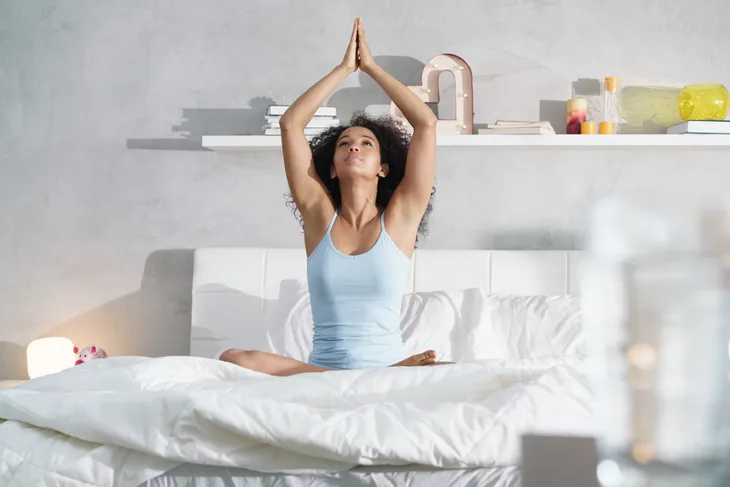Ah, nothing beats the feeling of waking up from a long, refreshing sleep. But if that’s not the case for you, what’s keeping you up at night? Perhaps you had a long day and not enough time to do the things you enjoy. This might cause you to intentionally scroll on your phone for hours to get the satisfaction you desire. Does this sound like you? You might be engaging in ‘revenge bedtime procrastination’.
Revenge bedtime procrastination can be very tempting in the moment but frequent occurrences can leave you feeling tired and sleep-deprived. Not only that but it can even have negative effects on your physical and mental health. In this article, we dive into what exactly ‘revenge bedtime procrastination’ means, why we do it, and the consequences that come with it. Understanding this can help you recognize when you’re engaging in it and how to stop it from happening. Now, let’s stop procrastinating, and dive in!
What Is ‘Revenge Bedtime Procrastination’?
So what is ‘revenge bedtime procrastination’ anyway? It’s a term used to describe the decision to delay sleep for activities that offer more immediate enjoyment. It’s often driven by the lack of having free time during the day, and therefore is made up at night. However, it results in insufficient sleep.
Revenge bedtime procrastination can be very tempting, and may even help you feel more satisfied with your leisure time, but going to bed late and waking up early can have serious consequences. Later we’ll dive into those consequences but next, let’s explore the different forms of sleep procrastination and explore why we do it in the first place.
Forms of Sleep Procrastination
Did you know there are two forms of sleep procrastination? The first one includes delaying getting ready for bed in the first place. This is called bedtime procrastination.
The second form is called while-in-bed procrastination. This involves delaying the time you take to try and fall to sleep once in bed. This is especially common thanks to the use of electronic devices in bed. You may engage in one or both forms of sleep procrastination but both can lead to reduced nightly sleep.
Why Do We Do it?
So now that we understand what bedtime procrastination is, why do we do it? First, it’s important to understand that research in sleep procrastination is still early. This means there are ongoing debates on the psychology behind it.
However, there are a few speculations on what causes it. For starters, it may be a result of a failure in self-control. The demands of daily activities can reduce self-control in the evening and may cause you to procrastinate at bedtime. It may also be common in people who procrastinate in other general activities like studying, house chores, and more.
Finally, people who have an evening chronotype (also known as night owls) may be more susceptible to sleep procrastination as a result of being forced to adapt to early schedules. Revenge bedtime procrastination may happen for these people as a response to stress and an attempt to find recovery time.
Behaviors of Bedtime Procrastination
Do you stay up late often? If you’re wondering if what you’re doing is considered bedtime procrastination, then know certain behaviors deem your actions as procrastination. The three main factors that are required for your behavior to be considered bedtime procrastination include:
- Delaying going to sleep and reducing total sleep time.
- Being aware that delaying your sleep may lead to negative consequences.
- Not having a valid reason for staying up later than planned.
Who Is Most Affected By Bedtime Procrastination
Research on sleep procrastination is still in the early stages, so experts aren’t sure who is most affected by it. However, one study did find that women and students may be more likely to experience bedtime procrastination. Further, If you experience daytime stress or procrastinate in other areas of your life, then you may be more susceptible to bedtime procrastination too.
The Consequences of Bedtime Procrastination
Revenge bedtime procrastination may be appealing at the moment, however, doing this too often can lead to sleep deprivation. This can have negative consequences on your physical and mental health.
Lack of sleep can cause irritability and can negatively affect your memory, and decision-making skills. It may also weaken your immune system and lead to mental health disorders like anxiety and depression.
Sleep is so important because it helps your body and mind recharge and helps you function the next day. Sleep Foundation explains, “For most adults, at least seven hours of sleep each night is needed for proper cognitive and behavioral functions.” Most adults may be able to get by on seven hours of sleep but seven to nine hours is most recommended.
How To Stop Revenge Bedtime Procrastination
It’s no question that bedtime procrastination is unhealthy and can wreak havoc on your much-needed sleep time but how do you stop it? Two of the best ways to stop sleep procrastination are to establish healthy bedtime habits and to create an inviting sleep environment. Let’s explore these next.
Bedtime Routine
First, establishing a bedtime routine can help you make good habits to the point where your actions feel automatic. As a result, you should be able to resist the urge to stay up later.
Some good habits to start include sticking to a consistent bedtime and wake-up time on both workdays and non-working days, avoiding caffeine late in the day, and avoid electronic devices at least a half-hour to an hour before bed.
Finally, find ways to unwind before bed to help you relax. This may include taking a warm bath, reading a book, yoga, meditation, or anything else you find relaxing.
Sleep Environment
In addition to establishing a bedtime routine, it’s also very important to create an inviting sleep environment. For starters, if you don’t have a comfortable mattress, it’s time to invest in one. After all, you spend many hours a day sleeping on it!
You’ll also want to make sure your room is dark and quiet. Removing TVs in the bedroom is also a great way to avoid stimulation before bed. Keeping a comfortable climate is also essential for good sleep. You’ll want to ensure your room is cool but not cold (about 65-degrees Fahrenheit give or take) to help you maintain sleep all night.
Ensuring you have a comfortable and inviting sleep environment may help prevent the desire to procrastinate sleep for leisure activities.
When To See a Doctor
If you’ve tried your best to prevent bedtime procrastination and you’re still waking up tired consistently, then it’s time to speak with your doctor. Your doctor will be able to help review your sleeping habits and determine whether you have a sleep disorder. If this is the case, your doctor will be able to help you make a plan to get more and better sleep.













